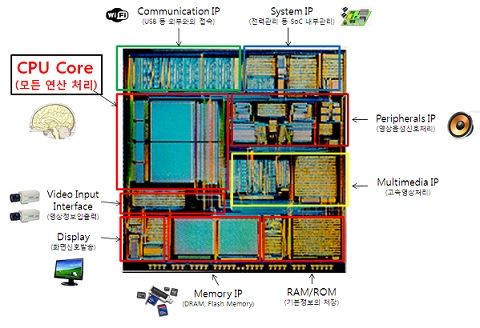Korea to invest $34m in mobile CPU core development

The Ministry of Trade, Industry and Energy held a press conference at the headquarters of the Korea Semiconductor Industry Association in Pangyo, Gyeonggi Province, and announced a roadmap to develop next-generation mobile CPU cores locally.
Government officials at the conference said the ministry will first invest in mid-tier CPU cores that local fablesses (chip designers who outsource the manufacturing) can handle with their technology, taking into account the gap between them and UK-based ARM and other first-class companies.
While Korean chip makers, such as Samsung Electronics and SK Hynix, are number one and number two in the global memory chip market, they are yet to move into CPUs, or processors. Local electronics makers have long relied on imports of cores from foreign companies.
According to estimates from the government, in 2008 local companies paid 180 billion won ($176 million) in royalties to foreign companies while in 2012 they paid 350 billion won ($342 million).
Market watchers expect this figure to rise as high as 900 billion won ($880 million) by 2020.
Ministry officials put the initial focus on mid-tier, lower speed cores that will most likely be used in wearable smart devices and Internet of Things (IoT) devices that usually require one core with speeds between 100 Megahertz and 1 Gigahertz.
“Premium” cores used in smartphones, tablets, head-mounted devices (HMD) and Smart TVs, will be approached later after Korea succeeds in commercializing mid-tier CPU cores, officials at the conference said.

Local research centers started investing in mobile CPU cores in 2001 but are yet to bring out tangible results that can compete in the global market.
“The global processor chip market is four-times bigger than the memory chip market,” said Choi Tae-hyun, director of the material and component industry policy team at the ministry. “It is crucial for us Korean semiconductor businesses, which largely produce memory chips, to secure next-generation technology in the more lucrative mobile CPU core market.”
25 billion won will come from public funds and 10 billion from private funds, they said, and will go to various Korean research agencies in need of funding.
Source: ZDNet Korea (www.zdnet.co.kr)